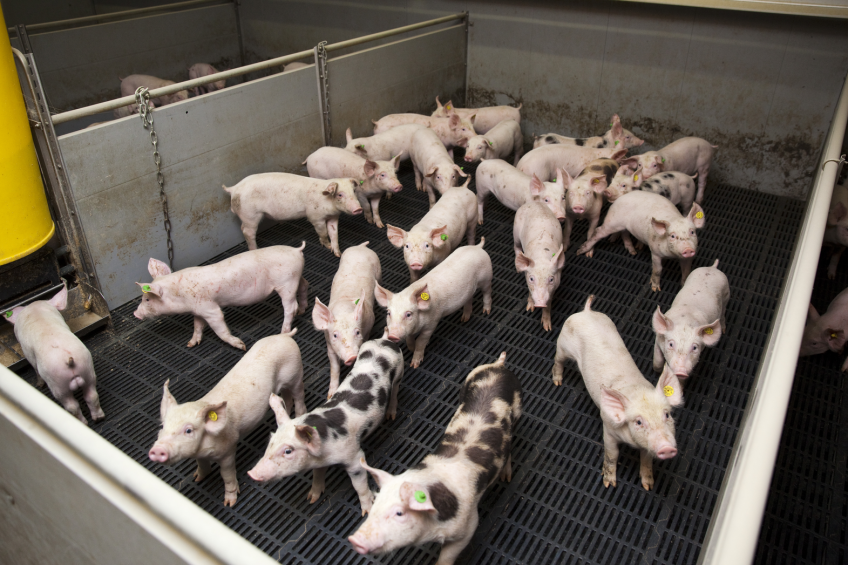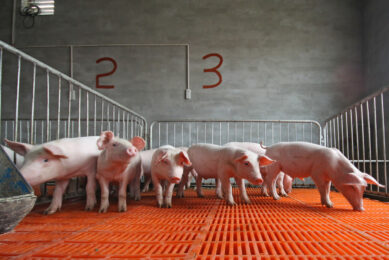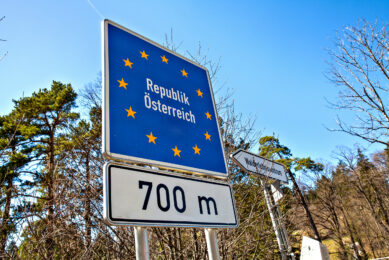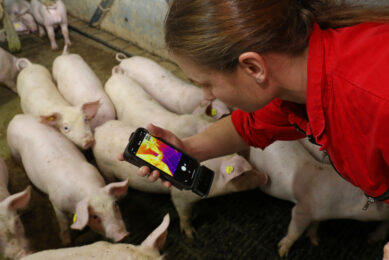Sustainably intensifying pig production in the EU

Making intensive pig and poultry production in the European Union more competitive and profitable through sustainable intensification. That is at the core of the new ProHealth project, coordinated by Newcastle University, UK.
A consortium of 22 academic, industry and private enterprise organisations from 11 countries have been granted €11.9 million by the European Union to identify new health solutions to reconcile modern animal production systems and sustainability within the EU. At an introducing press conference, project coordinator Prof Ilias Kyriazakis, Newcastle University, said: “We have to invest in ways to get more competitive, because at this moment we are not. This project is designed to help our industry to lead again. Sustainable intensification is the way forward.”
Dr Theo Kanellos, Zoetis director of strategic alliances, added: “Within the five-year timeframe we will deliver novel diagnostics to predict the propensity of production disease development in animals, communication tools for increasing awareness, vaccines, management tools and so on. At the end of the day the veterinarians in the field and the farmers want an answer to their problems. With all the partners involved, some working on a farm level, our research will definitely reach the farmers in Europe, giving them the tools to be more competitive.”
ProHealth
ProHealth (short for ‘production health’) aims to enhance fundamental understanding of the complex interactions between animal, environment and disease agents which underlie the expression of production diseases. It will use this knowledge to develop and test effective innovative control strategies applicable in large scale intensive pig and poultry production and quantify their health, welfare and economic benefit. In official communication, ProHealth’s official aim was described as to ‘contribute to our understanding of the multifactorial dimension of animal pathologies linked to the intensification of production’, and ‘to help to provide effective control strategies to reduce the impact on animal welfare, including health’.
The project will address production diseases of pigs, broiler and egg laying chickens, and turkeys raised in a wide range of EU intensive systems, using both epidemiological and experimental approaches to consider the extent of, and the risk factors associated with diseases, the influence of genotype and its modification by early life experience and the dynamic influences of the environment on disease. The mechanisms underlying differences in disease susceptibility will be explored at different levels. Improvement strategies for diseases including neonatal mortality, gut and respiratory disorders, leg and metabolic disorders will be evaluated in farm scale tests, and data from diverse systems used to model whole chain socioeconomic implications of disease states and their alleviation.
The overarching aim of the five-year project is to improve the competitiveness and sustainability of intensive pig and poultry farming in the EU. A holistic approach, focusing on the understanding of multifactorial dimension of animal diseases linked to the intensification of production is different than in other scientific studies.
Pig sector
About 60% of the research grant will be spent on pig diseases. Dominiek Maes, past president of the European College of Porcine Health Management (ECPHM), said: “Production diseases do great harm to profitability in the pig sector. Our goal is to let the pig industry thrive again in Europe. Good productivity has to compensate our European disadvantage for high labour costs. Our areas of focus, being respiratory diseases, gastro-intestinal disorders and locomotion problems are factors of importance when it comes to the reduction of antibiotic use as well. The multifactorial approach will help our sector in multiple ways.”











